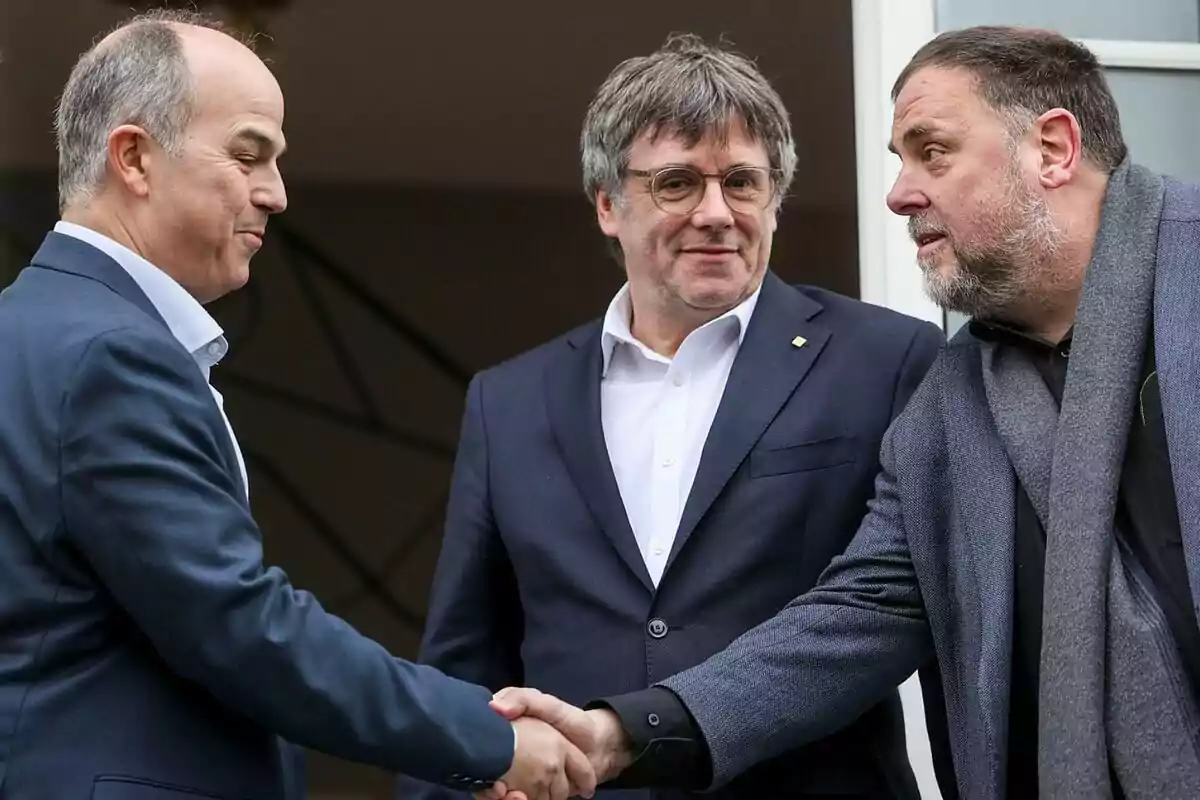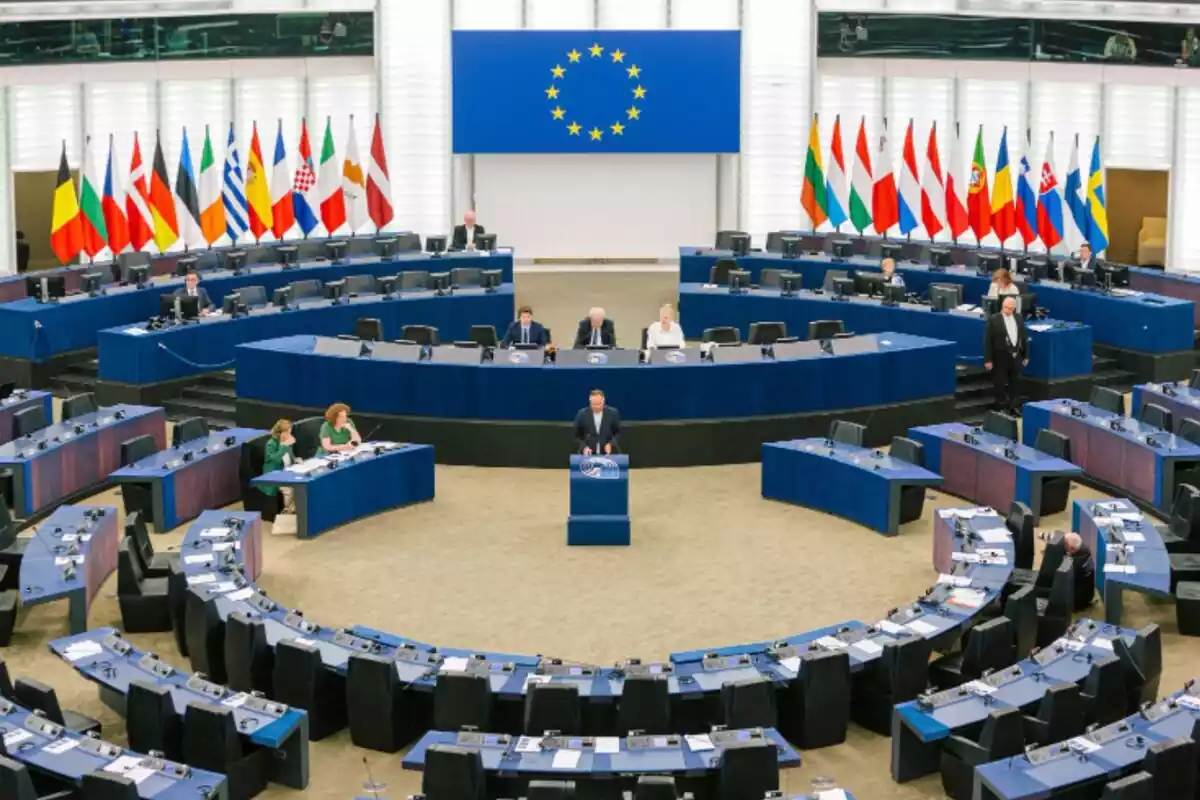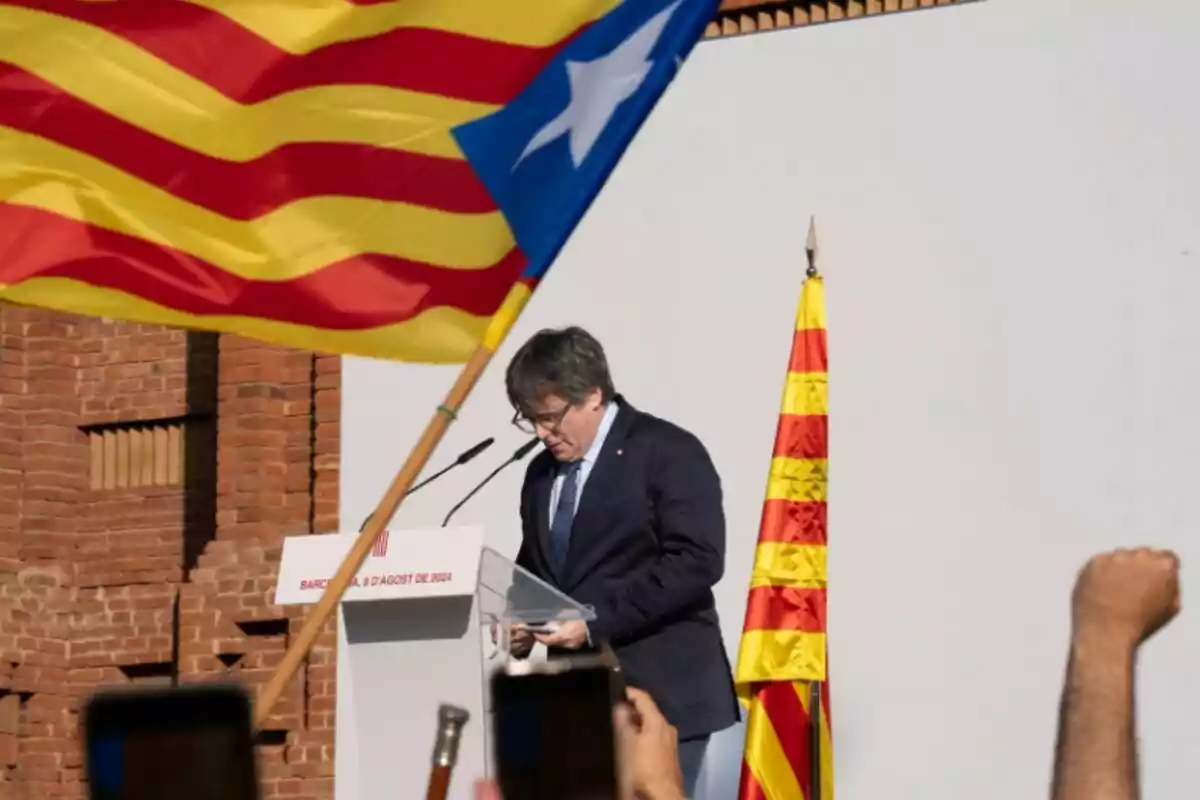
Catalan accentuates the crisis of pro-separatism activists
ERC and Junts have been unable to find unity or the right approach to save the last stronghold of national identity
Language has always been the cohesive vehicle of Catalan nationalism—as opposed to Basque ethnic nationalism. That's why language is also becoming the catalyst for the decomposition of the separatism process. The Pacte Nacional per la Llengua and the official status of Catalan in the EU have intensified the crisis among parties and organizations.

The Pacte Nacional per la Llengua, a commitment by PSC with ERC for Salvador Illa's investiture, has set the separatist parties against each other. Esquerra has defended the agreement, while Junts and CUP have opposed it.
It has also divided organizations aligned with the parties. Òmnium Cultural, an organization close to ERC, has signed the agreement. ANC, led by Lluís Llach and closer to Puigdemont, has refused to join and has been highly critical.
This Tuesday, the official status of Catalan in the EU will be voted on, one of PSOE's commitments with Junts for President Pedro Sánchez's investiture. The Government is optimistic, but skepticism still lingers among several countries in the union.
Meanwhile, ERC and Junts have joined forces in this battle, which, however, has caused disaffection among critics. For example, Josep Costa, a member of ANC's national secretariat. "I'm not against the official status of Catalan in the EU," he said, "I'm against wasting time trying things that already failed with the Statute."
The failure of Junts and ERC
The failure of ERC and Junts regarding the language issue exemplifies the overall failure of their political project. Language has become, for the separatist movement, the last stronghold to save their national project. The parties' inability to find unity and the likely fiasco in the European Parliament show their weakness and the ongoing use of deception.
The reaction from the grassroots is an increase in disaffection. This disaffection was first expressed through electoral abstention and is now channeled into growing support for Aliança Catalana. The result has been the unstoppable collapse of the separatist parties, unable to recover their momentum.

The latest moves by ERC and Junts also don't help reverse the situation. ERC has strengthened its support for President Pedro Sánchez's Government while in Catalonia it has approved the credit supplement to support Salvador Illa's Govern. Puigdemont, who has spent months threatening to bring down Sánchez, has lowered the tension and seems willing to save his Government at all costs.
This strategy reinforces the image of ERC and Junts as mere supporters of socialist governments. The grassroots believe that the two major parties have sacrificed Catalonia's interests to protect their privileges in the institutions.
False expectations and frustration
While waiting for the final decision from the European Parliament, the official status of Catalan reflects the failure of the separatist strategy. Junts has done with this issue the same thing ERC did with special financing.
They use a historic demand as a bargaining chip to secure their political interests, fully aware of the difficulties in making it happen. This creates false expectations that are never met, increasing frustration.
Junts sold the investiture pact with PSOE as a historic agreement, but a year and a half later there is neither amnesty nor (probably) official status for Catalan in the EU. It doesn't matter. Because the suicidal strategy of narcissism includes blaming the other when promises end up sinking.
ERC promises special financing knowing it can't be fulfilled, because if it fails, they can always blame PSC. Junts does the same: if amnesty fails, they blame the judges, and if the official status of Catalan fails, they'll blame Sánchez.
More posts: